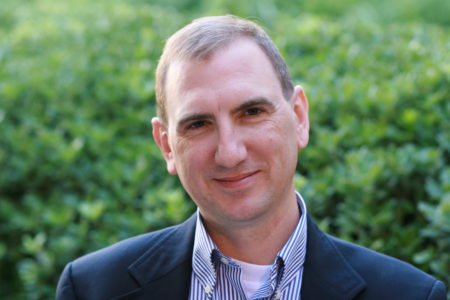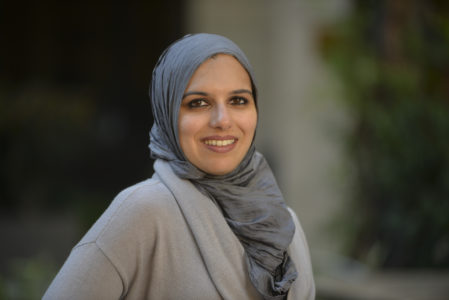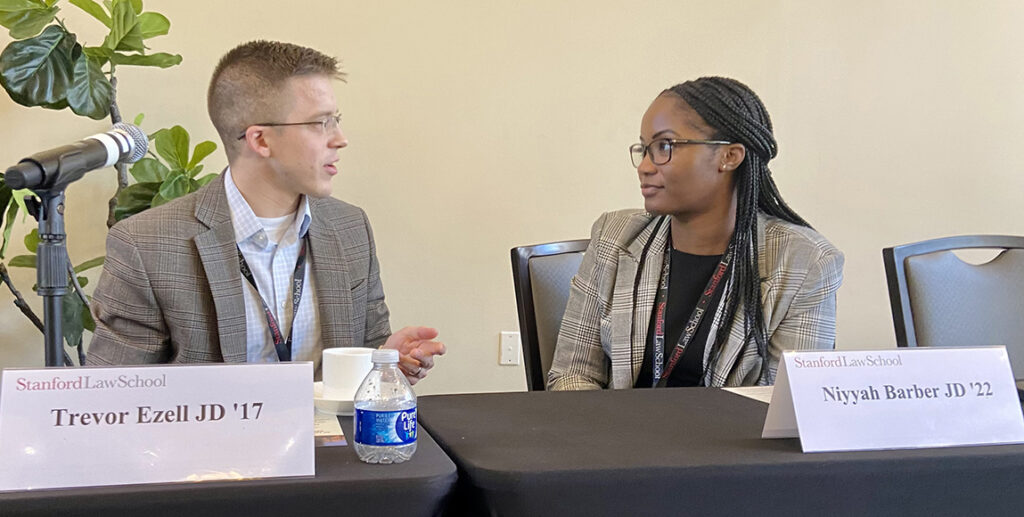Stanford Law School’s Groundbreaking Religious Liberty Clinic Celebrates Milestone Anniversary
When Stanford Law School Professor James Sonne launched the school’s Religious Liberty Clinic in 2013, there were no blueprints to consult or models on which to build. Stanford Law School’s clinic was the first of its type in the country.

This year, as the clinic celebrates 10 years of pioneering education and advocacy on behalf of all faiths—from Buddhists to Seventh-day Adventists—Sonne reflects on a decade spent guiding students in what he calls a “deeply human” area of the law. As he looks ahead to the next 10 years, Sonne envisions similar clinics populating law schools across the country. Indeed, since the SLS clinic was founded, at least five other schools have established clinics focused on religious liberty: Harvard Law School, Yale Law School, Notre Dame Law School, Pepperdine Caruso School of Law, and the University of Texas School of Law. What Sonne launched at SLS as a pilot project a decade ago now leads a clinical movement.
The Religious Liberty Clinic celebrated its 10th anniversary in March with an event at Paul Brest Hall, which brought together clinic alumni, clients, nonprofits with which the clinic works, and representatives of other law school religious liberty clinics for an afternoon of panel discussions and an evening dinner.
“Religious liberty is a cherished part of our national identity that goes to the heart of what it means to truly live and flourish together in a pluralistic society, whether you are a believer or a non-believer,” Sonne says. “Religious liberty belongs to everyone because it is about human freedom, the dignity of the human person, the right of individuals and communities to explore and live out their own answers to some of the most fundamental questions this life has to offer, and to do so in peace and mutual respect with others who may have different answers or perspectives.”
Religious liberty cases also serve as a particularly powerful instructional tool for future lawyers, Sonne emphasizes. Rooted in a vision of religious liberty as a universal value, a diverse group of students has the opportunity to represent a diverse group of clients in a variety of circumstances, from factory workers to death-row inmates to priests. The laws at issue in the cases are varied, as are the forums for litigation. Students present to city councils, conduct discovery in trial courts, brief and argue in courts of appeal, and draft briefs to the U.S. Supreme Court. The matters the clinic handles are deeply personal and meaningful to the clients and can often result in broad societal impact.
Broad Range of Cases and Clients
Zeba Huq, lecturer in law, who joined the clinic as a supervising attorney in 2015, underscores that the clinic’s focus is on supporting real people who face barriers to practicing their religion in their everyday lives. “Often, religious liberty is simply about people from marginalized communities or minority beliefs trying to live and work while honoring their conscience,” she says.

Cases come to the clinic from civil rights groups and religious organizations, as well as direct outreach from prospective clients and even courts that assign the clinic to pro bono matters because of the clinic’s reputation in the field. A short list of the clinic’s representative matters speaks to the diversity of clients and legal issues that fall under the religious liberty umbrella: Sikh truck drivers facing employment discrimination for refusing to cut their hair, Hare Krishnas looking for local tax relief for their temple, Jewish inmates seeking Kosher meal accommodations, a Muslim congregation fighting to build a mosque, a Christian homeless ministry in a zoning dispute.
Some matters can be resolved quickly, with little acrimony. When a terminally-ill Eastern Orthodox religious leader sought to be buried at the California monastery he founded—which existing law precluded—clinic students were able to expeditiously secure a legislative solution. By contrast, successive teams of clinic students litigated for eight years to secure a recent trial win on behalf of a Seventh-day Adventist who was denied a job as a prison correctional officer due to her need to observe the Sabbath. It likewise took six years and multiple phases of litigation for the clinic to notch a landmark victory for a ministry seeking to serve the homeless at a neighborhood church.
Students also regularly advise religious communities on their rights, including drafting handbooks for Native American prisoners and a practice guide for asylum seekers based on religious persecution, both of which have become go-to resources for practitioners.
Training and Teamwork

Trevor Ezell, JD ’17, a clerk for United States Supreme Court Justice Neil Gorsuch, says the Religious Liberty Clinic was one of the primary reasons he chose to attend SLS. “A big part of that was my own faith background, but it was so gratifying having clinic classmates who were not religious at all yet were inspired by the importance of what we were doing.” One of Trevor’s cases involved a religious group he initially knew virtually nothing about: Hare Krishnas, who sought the clinic’s help in securing tax-exempt status for their temple.
In order to drill down to the relevant taxation issues, Ezell had to extensively interview members of the religion about how their religious observances were manifested through their use of their temple. The preparation that Sonne provided to the students proved invaluable. “Our training taught us how to be active listeners and to approach our clients with humility about what we didn’t know, to come in wanting to learn. These are all skills that are critical to being a good lawyer and which I have drawn on virtually every day since graduating.” Ezell and his team successfully challenged the taxation of the Hare Krishna’s temple property.
Current SLS student Daniel Zahn, JD ’23, a Religious Liberty Clinic student during his 2L year, says he appreciated the opportunity to travel to Queens, New York, to interview his Falun Gong clients who sought legal protection from threats, intimidation, and violence at their sidewalk prayer booths. Zahn and his clinic team members were thereafter able to tell their clients’ story in a Supreme Court brief that garnered national media attention and amicus support from 24 states. “Outside of the work for the clients, which was incredibly gratifying, one of the most impactful aspects of the clinic for me was how much I enjoyed the teamwork amongst the students. Law school can be an isolating and competitive place. Clinic was so beneficial in countering that.”
Niyyah Barber, JD ’22, who participated in the clinic remotely during the COVID-19 shutdown, says she came into the clinic focused on the “big doctrinal issues and Constitutional law questions,” yet emerged not merely with a deeper understanding of these matters but, perhaps more importantly, with a wider appreciation for the impact that the clinic’s work has on individuals’ lives. “Often it isn’t about the big legal doctrines at all. It is about helping people who are often minorities in a community, who are misunderstood or the victims of bureaucratic indifference or ignorance,” she says. Barber is now a clerk for David Godbey, chief judge of the U.S District Court for the Northern District of Texas.
Different Faiths, Common Goals
The Sikh Coalition, which represents individuals who have been discriminated against based on their Sikh identity in litigation and advocacy matters, has partnered with the Religious Liberty clinic on numerous cases and projects. The group’s national legal director, Amrith Kaur Aakre, says the Coalition relies heavily on the clinic’s resources. “Pro Bono organizations like the Sikh Coalition need the expertise and resources of the Stanford clinic to help us combat bias across American workplaces at a high impact level. We’d never be able to take on the number of clients or cases we do without partnerships like this and are grateful to the students and clinic staff who help make our work possible.”
Brett Lee Shelton, JD ’96, a staff attorney with the Native American Rights Fund, which has worked with the clinic on various projects, acknowledged that even among people who feel called to do religious liberty work, strongly held individual views about religion can lead to disagreements and uncomfortable conversations. “But that’s the point. That’s what you want,” he says. “It is important to have places where sitting in that type of discomfort or disagreement is modeled and encouraged. The Religious Liberty Clinic serves as a model for this kind of discourse, for teaching people that they can disagree about fundamental matters of faith and spirituality, but still move ahead toward a common goal in charity, respect, and friendship.”
Sonne echoes those sentiments in speaking about the ultimate goal of the clinic: “Our objective is to prepare aspiring lawyers for the practice of law at the highest levels, no matter the area they go into, while developing an appreciation for religious liberty as a right that belongs to everyone regardless of faith or party as a matter of their human dignity,” he says.
